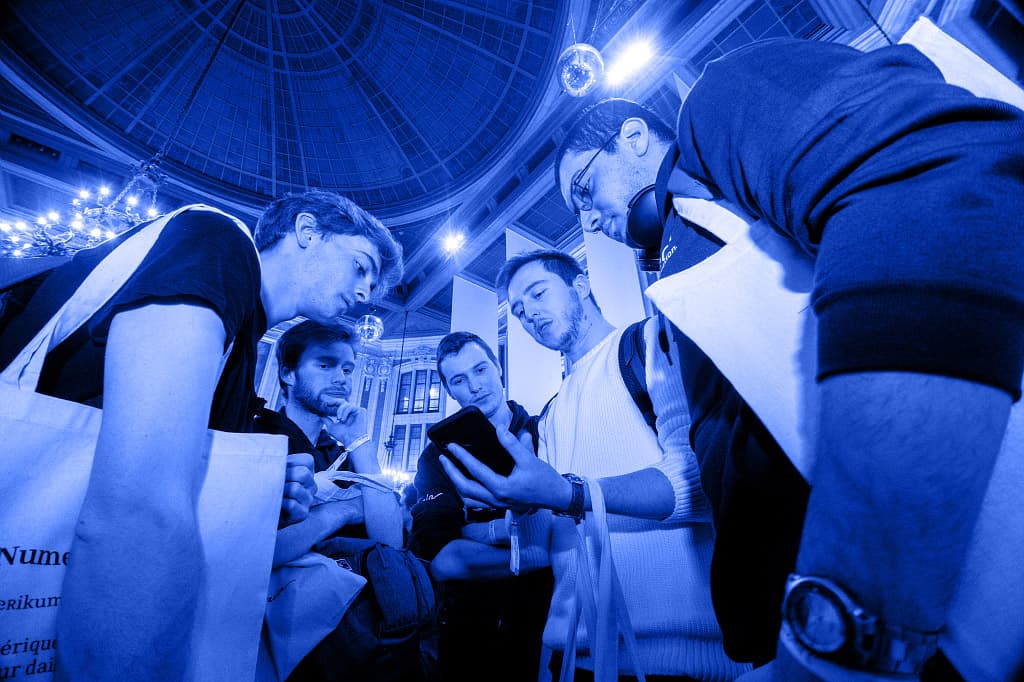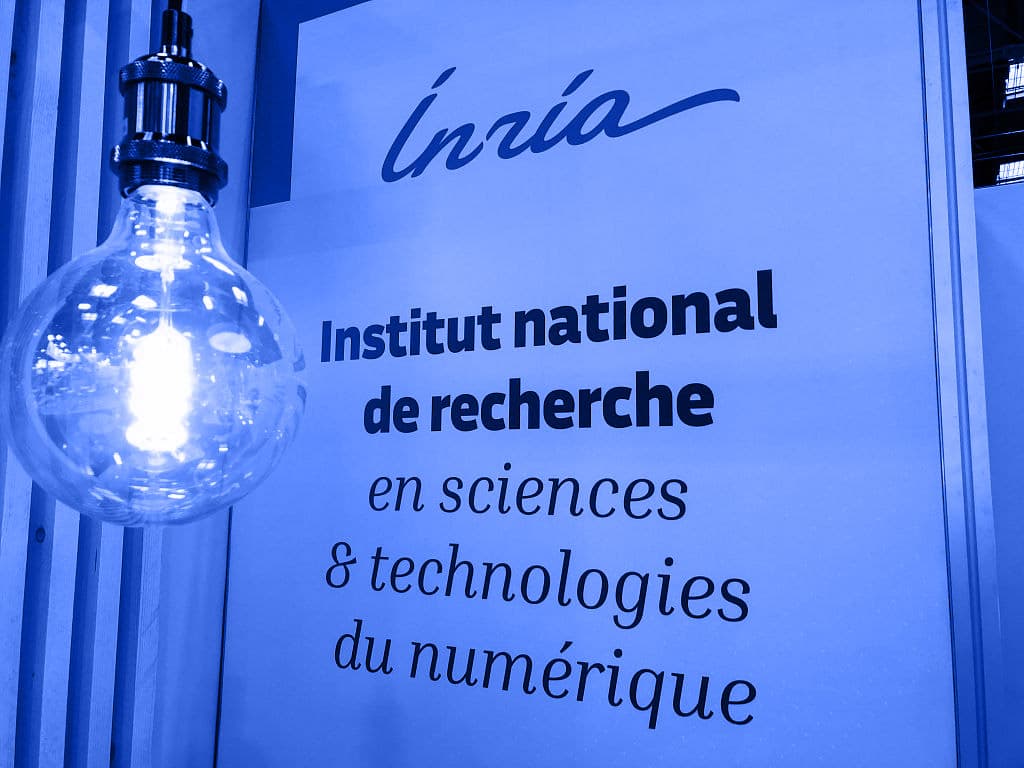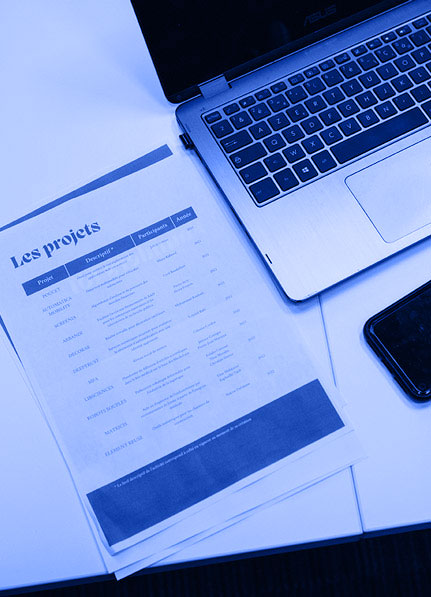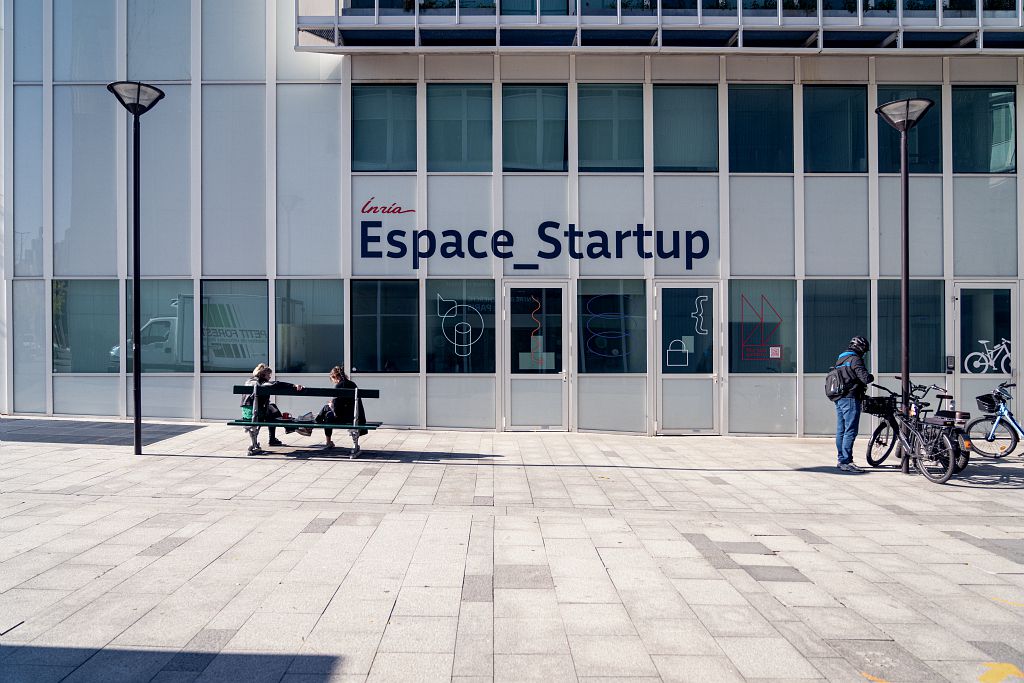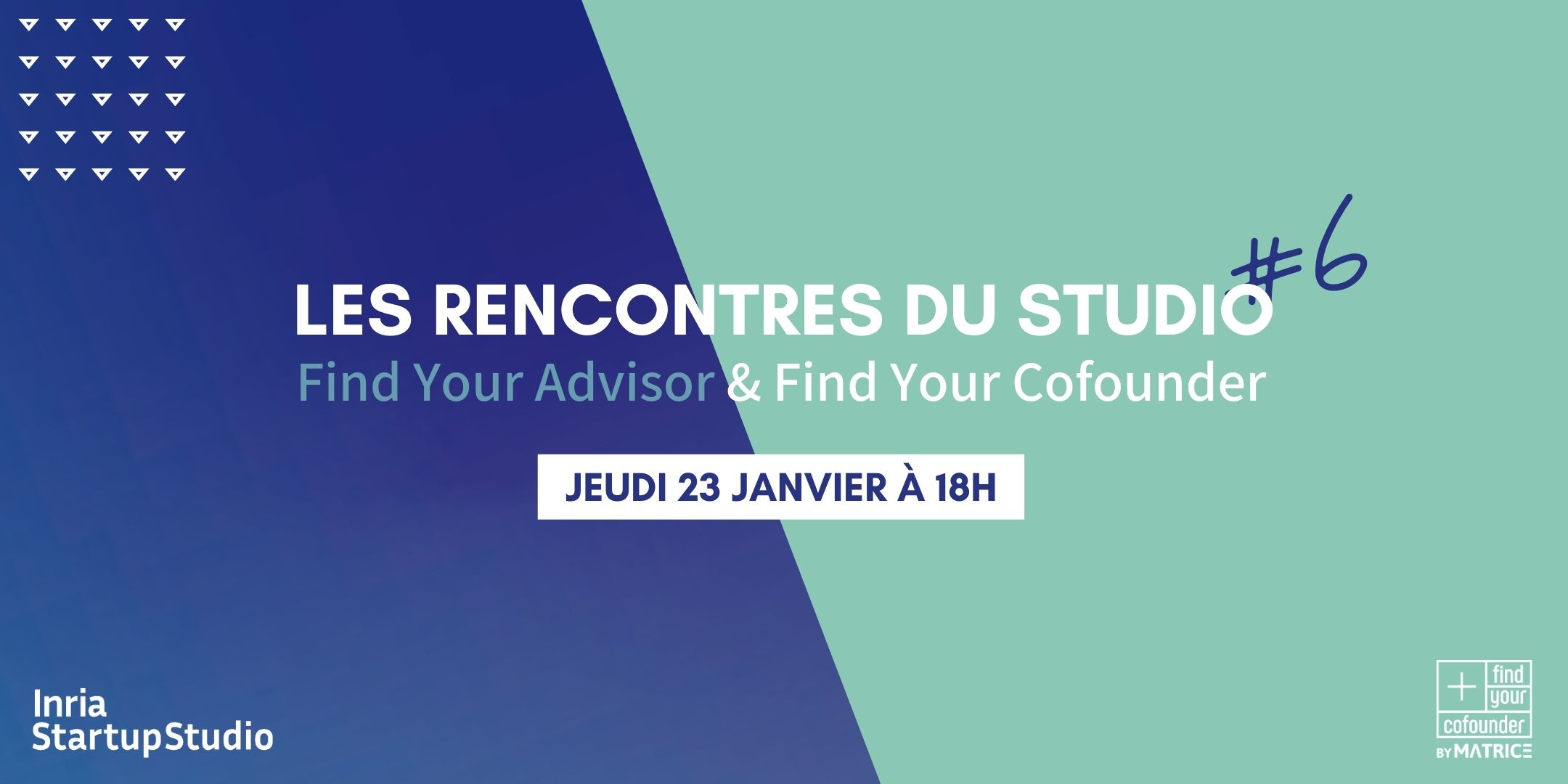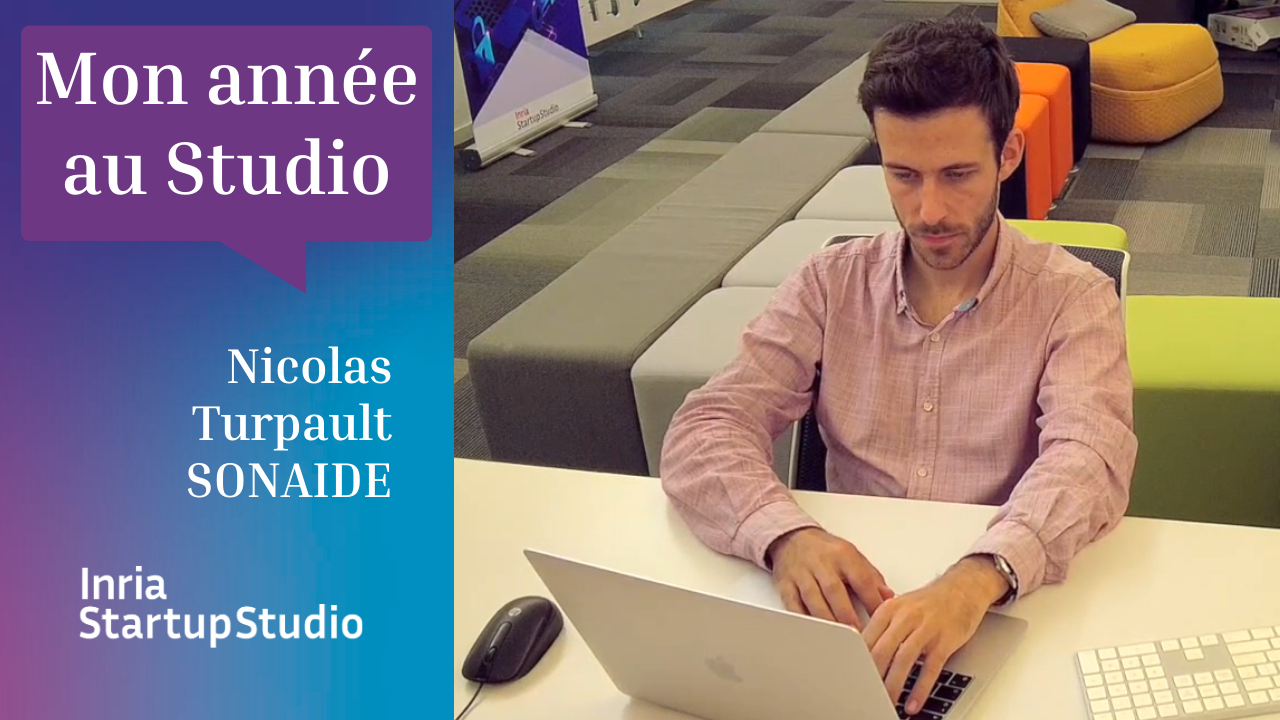
My year at the studio by Sonaide
Immerse yourself in the story of a year of entrepreneurial exploration in ISS program, through alumni testimonies. Whether they created an innovative business at the end or not, everyone experienced an engaged, enriching and personal year. Listen to them and discover through the videos and interviews, their challenges, highlights and major learnings; without forgetting the power of the meetings that make the history of startups.
Nicolas Turpault: Without support, we would have been pushed to move too quickly towards an uninteresting “gimmick” solution…
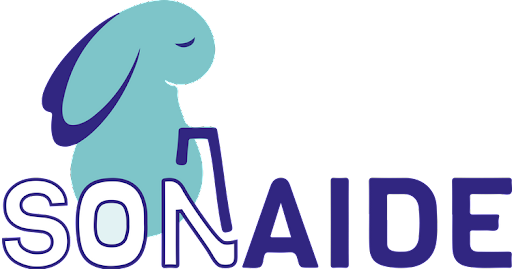
From the start of his studies, Nicolas Turpault knew that one day he would launch his own business. He sees an opportunity to do this during his research into the analysis of ambient sounds using artificial intelligence. With the help of the startup studio Inria, he successfully identified and explored the market for assistance to elderly people in dependent situations. Explanations.
Reassure loved ones in the event of an alert and identify the warning signals of a loss of autonomy thanks to the analysis of ambient sounds within an elderly person’s home… This is the benefit of the solution developed by the startup Sonaide, founded in April 2023 by Nicolas Turpault and Simon Pageaud, and which, after a year of support within ISS (Inria Startup Studio), has just completed fundraising with Flore.group and the BPI. The challenge ? After a free experimentation phase carried out with non-medical senior residences, Sonaide is now entering a paid beta phase, and is looking for partners capable of supporting it to move from prototyping to the industrialization of its solution.
We can therefore measure the progress made by Nicolas Turpault, who passed through the Polytech Sophia Antipolis engineering school where he simultaneously completed a Master’s degree in entrepreneurship at the IAE in Nice, then a thesis in computer science at the Inria center in Nancy. From Polytech, he knew he wanted to be an entrepreneur. His choice of thesis for an applied subject is not trivial, but it is only at the time of finalizing the 3 years of research that the question of finding concrete applications for his work arises, that is to say i.e. founding a startup based on the analysis of ambient sounds in a real domestic environment, all with a minimum of data collection and annotation, as well as the lightest possible Artificial Intelligence model.
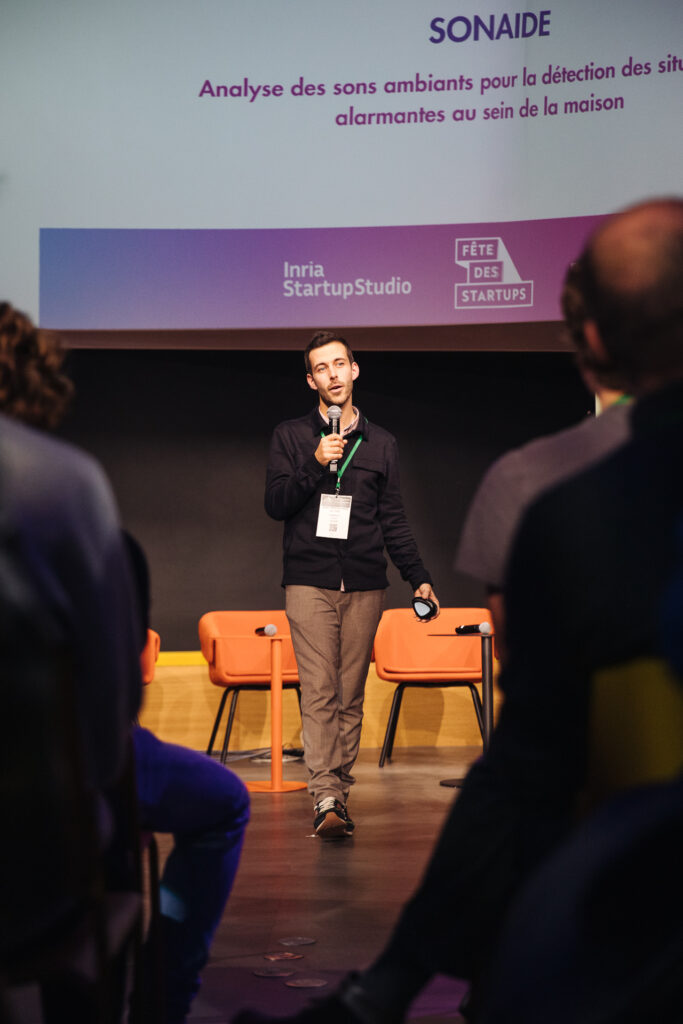
Develop a project that makes sense
“In each research publication, the author indicates several theoretical use cases, such as the assessment of noise pollution in cities, or personal assistance. From the start of the adventure within the startup studio, I took two months to explore the market, and as I met, I was asked if my work could identify water leaks, or still the presence of pests in museum stocks!”
During a hackathon organized with students, Nicolas Turpault proposed a smart city application. “But the subject of assistance to the elderly kept coming up and after a while, you also had to be lucid: to embark on such a project, you must have a personal appetite for the subject. The loss of autonomy particularly affected me, even more so since I had discovered the grid used to assess the loss of autonomy, which had to be completed by a doctor at the patient’s request. In addition, it contains a lot of information that we could deduce from ambient sounds, indicates the engineer, who sees a real interest in using his solution to help relatives assess the degree of dependence of an elderly person, because these The latter rarely ask to take the assessment test. From then on, Nicolas Turpault laid the foundations of the Sonaide project and won the hackathon.
But everything still remains to be done: “I had to find a way to exploit my research work to create a concrete application on this problem. I spent a week with a home care assistant to understand the current support, the information that the care assistant collects and shares each time. I was surprised to learn that we go so far as to look in the trash to find out if the person has eaten. I discovered that there are five types of weak signals of loss of autonomy: hygiene, nutrition, sleep, loss of movement and isolation. We then had to determine whether it was technically possible to develop use cases based on these lessons, and how to bring a relevant solution to the market for our prospects.”
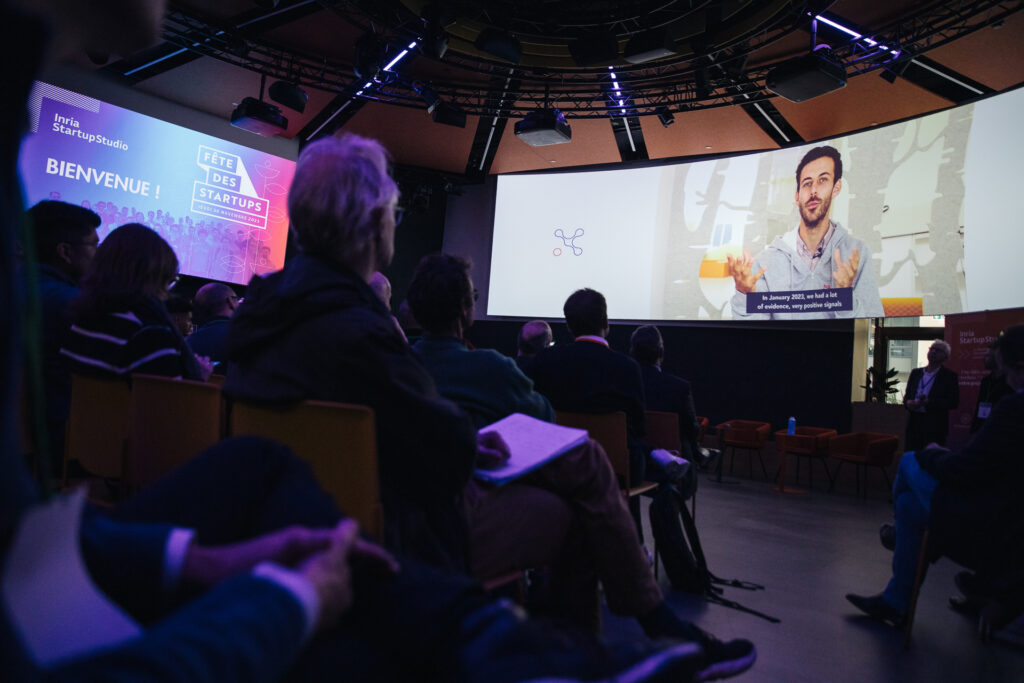
Successfully explore your market
The entrepreneur carries out his first tests by approaching independent residences or senior service residences and addressing the subject of hygiene: detection of showers, toilet flushes and faucets… The results are encouraging and appreciated by the staff of these establishments, but the first presentations to residents did not meet with the hoped-for success! It was necessary to develop functionalities whose benefit was more concrete for the elderly. Sonaide then takes inspiration from one of the successful connected watch applications and launches a sleep quality analysis functionality.
“But we needed more. I then looked into the subject of remote assistance. A constant request from families is the detection of falls and other problems. We therefore used this base, adding more and more functionalities on the recommendations of potential partners, and by developing lightweight sensors, which can be installed in the home, unlike certain competing, more expensive solutions, which rely on complex systems with many sensors,” says Nicolas Turpault, who then finds his MVP. “Luckily, because we were coming to the end of our support at the start-up studio, and I really wanted to develop a useful solution, not a gadget. Most remote assistance calls are false alarms, and the recognition of ambient sounds can already make it possible to pre-qualify calls and reduce the number of times emergency services travel unnecessarily, in addition to detecting situations where the bracelet or the necklace would not be worn.”
The entrepreneur recognizes that without Inria Startup Studio, he would have had less time to refine the project until it met the interest of partners and investors. “Without support, we would have been pushed to move too quickly and make a “gadget” product of no real use to society… On the contrary, ISS gave me the material means to surround myself and also to question myself regularly , through the boards or the daily support offered by the startup studio. I was able to explore the silver economy market from top to bottom, where some solutions are launched with a poor appreciation of the sector. It was also the start-up party organized by ISS which allowed us to meet our investors!”
(Did you miss it? Read the article by Brij Srivastava, co-founder of Nijta, Thibault Lenard, co-founder and CEO of Operys, Marie Paindavoine, founder of Skyld and by the Compliance Robotics research team.
Publication date: 15/05/2024
Want to get started ?
